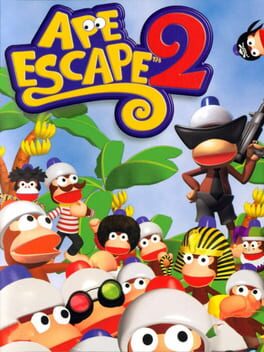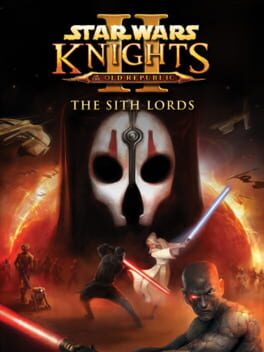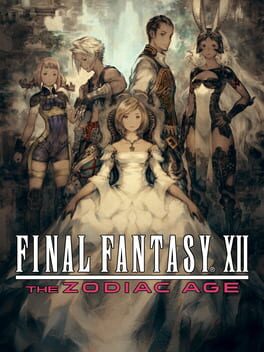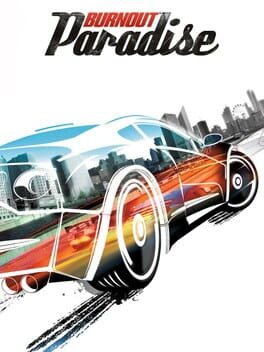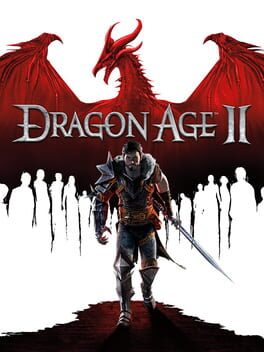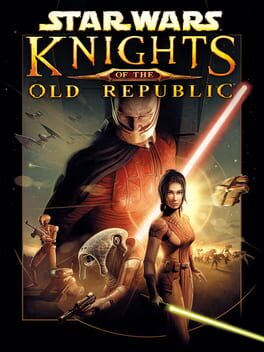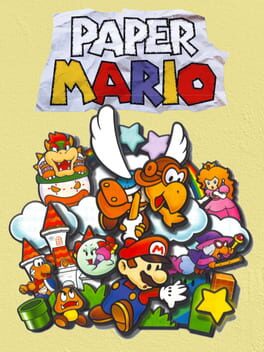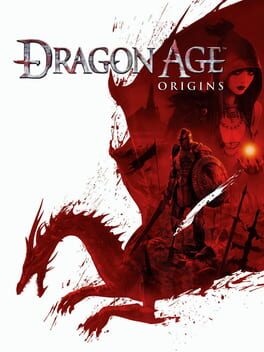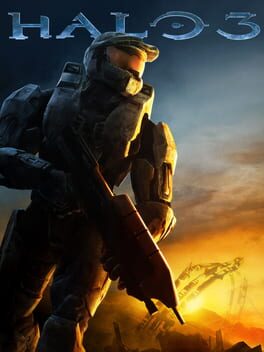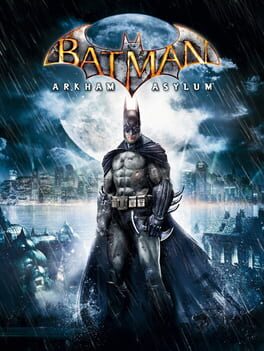MokeyMokey
BACKER
10 reviews liked by MokeyMokey
Ape Escape 2
2002
a sad example of a sequel completely treading water and failing to expand its series concept a single iota. in many ways you could take my ape escape review and just plop it here without anything changed. many of the positives of the original game stemmed from its novelty in the space of 3D platformers and its excellent psx engine that showcased the hardware at its peak. its sequel seems infinitely lazier and less ambitious in comparison, cribbing extensively from the original with little variation and a lot of repetition. not bad, but terribly disappointing.
-all the original gadgets reappear, but the new ones are rather slight lock-and-key affairs that only serve to increase the amount of time you spend menuing to swap them in. the water cannon, bananarang, and magnet each have their own obstacles that can only be solved using them, and in no cases do the developers attempt to expand upon their usage or make legitimate puzzles involving them. lots of "oh the monkey is in a cage labeled with a banana, time to throw the bananarang" and "look a fire pit, time to use the water cannon" etc.
-dunno if I had rose-tinted glasses in the first game or not but good god the controls are stiff and unresponsive here. hikaru has no smooth speed-up and instead jerks into motion at the slightest touch of the analog stick. his first jump has range but is low, and his second jump is high but awkwardly kills all momentum. the sky flyer also feels less fluid than the original, or maybe I'm just misremembering. regardless, precision platforming felt more strenuous this time around, and the devs seem to have taken notice given that they gutted much of the legitimately difficult trials from the original
-level themes are inconsistent and slapdash compared to the mostly focused time-periods schtick of the original. no context for why I'm anywhere doing anything other than just catching more monkeys! the more elaborate interlocking levels of the original are also dumbed down here to mainly linear courses or maybe a loop here or there. might be giving the original too much credit but again I feel like it also did a better job giving monkeys specific challenges rather than just strewing them across the world haphazardly.
-soichi terada is absent this time around and thus the crystalline breakbeat and house of the original is pushed aside in favor of generic and schmaltzy midi abominations that left me with no other choice than to blare podcasts on top of it. going from a game that so perfectly nailed its quirky atmosphere with a polygonal shonen running around catching heavily-armed monkeys with a net all soundtracked by lite-rave blasts and comedown room leads... to this boring happy-go-lucky generic mascot platformer aesthetic that sucks the life out of the experience. dreadful
-ape escape itself is such a flawed design concept that the lack of changes are really striking. I said in the prior review that the right stick is meant for the camera; more specifically trying to triangulate angles between 1) your movement and position on the left stick 2) the angle of attack or object use on the right stick 3) the erratic movement of the auto-cam is actually less accurate than just having the camera on the right stick in the first place. one game (two really with ape escape 2001) should have been enough to prove this, but ape escape 2 blunders along with all of the same issues, inaccuracies, and frustrations of the original. of all the gadgets, the net is now somehow even more annoying because new cinematic swing animations that play randomly (or maybe when the game thinks you have a guaranteed successful catch?) have such severe windup that the monkey can actually simply walk out of your range during it, leading to an embarassing whiff that begs the question of why such an animation even exists.
the game's biggest positive is that at the same time of all of this it is still ape escape and is still a totally competent 3D platformer that I legitimately enjoyed in a brain-dead podcast game way during the middle section. by that point I already knew that the game was a clunker (after playing the first areas and being completely turned off the game for months) and had not quite reached the endgame (which felt utterly perfunctory and totally devoid of any iteration in challenge over the prior levels). bosses are fine too: functionally on-par with contemporaries with easy-to-parse attack patterns. the vehicle areas are simplistic but nice diversions, and thankfully they aren't over-deployed to the point of becoming stale.
ape escape thrives on its cheeky experimental streak, and unfortunately ape escape 2 lacks that charismatic edge to keep the player engaged. I wasn't expecting to see a series with a concept so fresh and flippant trot out the hits so soon in its chronology. somehow not a surprise sony withheld this one from the states for an entire year only to let ubisoft publish it in their stead.
-all the original gadgets reappear, but the new ones are rather slight lock-and-key affairs that only serve to increase the amount of time you spend menuing to swap them in. the water cannon, bananarang, and magnet each have their own obstacles that can only be solved using them, and in no cases do the developers attempt to expand upon their usage or make legitimate puzzles involving them. lots of "oh the monkey is in a cage labeled with a banana, time to throw the bananarang" and "look a fire pit, time to use the water cannon" etc.
-dunno if I had rose-tinted glasses in the first game or not but good god the controls are stiff and unresponsive here. hikaru has no smooth speed-up and instead jerks into motion at the slightest touch of the analog stick. his first jump has range but is low, and his second jump is high but awkwardly kills all momentum. the sky flyer also feels less fluid than the original, or maybe I'm just misremembering. regardless, precision platforming felt more strenuous this time around, and the devs seem to have taken notice given that they gutted much of the legitimately difficult trials from the original
-level themes are inconsistent and slapdash compared to the mostly focused time-periods schtick of the original. no context for why I'm anywhere doing anything other than just catching more monkeys! the more elaborate interlocking levels of the original are also dumbed down here to mainly linear courses or maybe a loop here or there. might be giving the original too much credit but again I feel like it also did a better job giving monkeys specific challenges rather than just strewing them across the world haphazardly.
-soichi terada is absent this time around and thus the crystalline breakbeat and house of the original is pushed aside in favor of generic and schmaltzy midi abominations that left me with no other choice than to blare podcasts on top of it. going from a game that so perfectly nailed its quirky atmosphere with a polygonal shonen running around catching heavily-armed monkeys with a net all soundtracked by lite-rave blasts and comedown room leads... to this boring happy-go-lucky generic mascot platformer aesthetic that sucks the life out of the experience. dreadful
-ape escape itself is such a flawed design concept that the lack of changes are really striking. I said in the prior review that the right stick is meant for the camera; more specifically trying to triangulate angles between 1) your movement and position on the left stick 2) the angle of attack or object use on the right stick 3) the erratic movement of the auto-cam is actually less accurate than just having the camera on the right stick in the first place. one game (two really with ape escape 2001) should have been enough to prove this, but ape escape 2 blunders along with all of the same issues, inaccuracies, and frustrations of the original. of all the gadgets, the net is now somehow even more annoying because new cinematic swing animations that play randomly (or maybe when the game thinks you have a guaranteed successful catch?) have such severe windup that the monkey can actually simply walk out of your range during it, leading to an embarassing whiff that begs the question of why such an animation even exists.
the game's biggest positive is that at the same time of all of this it is still ape escape and is still a totally competent 3D platformer that I legitimately enjoyed in a brain-dead podcast game way during the middle section. by that point I already knew that the game was a clunker (after playing the first areas and being completely turned off the game for months) and had not quite reached the endgame (which felt utterly perfunctory and totally devoid of any iteration in challenge over the prior levels). bosses are fine too: functionally on-par with contemporaries with easy-to-parse attack patterns. the vehicle areas are simplistic but nice diversions, and thankfully they aren't over-deployed to the point of becoming stale.
ape escape thrives on its cheeky experimental streak, and unfortunately ape escape 2 lacks that charismatic edge to keep the player engaged. I wasn't expecting to see a series with a concept so fresh and flippant trot out the hits so soon in its chronology. somehow not a surprise sony withheld this one from the states for an entire year only to let ubisoft publish it in their stead.
It's honestly staggering that Final Fantasy XII is as good as it is when you consider its famously troubled development. This is a game with one of the most brilliant RPG gameplay systems in all creation, a semi-automated battle system where the bulk of the consideration happens before the battle. The perfect midpoint of tactics and action RPGs, with one of the most addictive progression loops I've ever come across. All of this collides together and sings in beautiful concert when you consider the vast open fields and intricate dungeons that this team has designed for you. Forget Final Fantasies X, XIII and XV, THIS is what we call fucking vast. Gliding across frontiers, trudging in catacombs, I'm not sure I've ever felt more genuinely immersed in an RPG. Nocturne comes to mind but slips in dungeon design ever so slightly.
All of this! And then you consider Ivalice. How exactly did we forget to design towns and cities in this genre? It was clearly once there, this game is proof that a world can feel lived in and populated, but as budgets balloon and resolutions multiply, we continue to lose the soul of a Place in these games. Kamurocho in the Yakuza/Like A Dragon games, that's the last great JRPG town. This game has like at least 5 cities that feel huge and memorable. A modern marvel. I've spoken about Hiroyuki Ito but I haven't mentioned that this game was once helmed by Yasumi Matsuno. He created Ivalice after all, and I think even at the beginning of the game you can feel that exact same voice ring out in the story. After some internal reshuffling, Matsuno cited health problems and promptly left the Final Fantasy XII team. This is something I knew going in, I was bracing myself for the story dropoff, though hopefully not quite as cavernous as Vagrant Story's more vacant chapters.
Color me surprised then, when I found out that the story still comes away rock solid. It's maybe not quite as brilliant as Final Fantasy Tactics or as thought-provoking as Vagrant Story, but Final Fantasy XII does manage to retain that soul. People point to the characters being relative strangers as a weakness, I found it beautiful. That we could have 6 people bound by hasty circumstance, come together for the good of their homeland. People complain that there isn't a strong main character, I find that an utterly fascinating aspect of the story. It's clearly not what was intended, in early drafts it was clear that Basch was meant to be the protagonist of the game. But god, just how cool is it that we have three duos of characters to latch onto. Vaan and Penelo, the little fish in a big ocean. Gateways. Balthier and Fran, the cool, aloof, free sky pirates. Aspirations. Ashe and Basch, tragic victims learning to forgive. Heroes. This is well rounded! The game makes you care! It just doesn't throw 15 hours of cutscenes and constant dialogue at you to make it work. Final Fantasy XII trusts you to invest with your gameplay. Play the Roles. People, either jokingly or dismissively, say the game cribs everything from Star Wars. Sure yeah, Gabranth is Darth Vader. However, in every way that it is Star Wars it is also Lord of the Rings, Godzilla, AKIRA, and allegory to the occupation of Japan in the 1940s and 50s.
Final Fantasy XII. I love it. Completely and utterly. I'll be back.
All of this! And then you consider Ivalice. How exactly did we forget to design towns and cities in this genre? It was clearly once there, this game is proof that a world can feel lived in and populated, but as budgets balloon and resolutions multiply, we continue to lose the soul of a Place in these games. Kamurocho in the Yakuza/Like A Dragon games, that's the last great JRPG town. This game has like at least 5 cities that feel huge and memorable. A modern marvel. I've spoken about Hiroyuki Ito but I haven't mentioned that this game was once helmed by Yasumi Matsuno. He created Ivalice after all, and I think even at the beginning of the game you can feel that exact same voice ring out in the story. After some internal reshuffling, Matsuno cited health problems and promptly left the Final Fantasy XII team. This is something I knew going in, I was bracing myself for the story dropoff, though hopefully not quite as cavernous as Vagrant Story's more vacant chapters.
Color me surprised then, when I found out that the story still comes away rock solid. It's maybe not quite as brilliant as Final Fantasy Tactics or as thought-provoking as Vagrant Story, but Final Fantasy XII does manage to retain that soul. People point to the characters being relative strangers as a weakness, I found it beautiful. That we could have 6 people bound by hasty circumstance, come together for the good of their homeland. People complain that there isn't a strong main character, I find that an utterly fascinating aspect of the story. It's clearly not what was intended, in early drafts it was clear that Basch was meant to be the protagonist of the game. But god, just how cool is it that we have three duos of characters to latch onto. Vaan and Penelo, the little fish in a big ocean. Gateways. Balthier and Fran, the cool, aloof, free sky pirates. Aspirations. Ashe and Basch, tragic victims learning to forgive. Heroes. This is well rounded! The game makes you care! It just doesn't throw 15 hours of cutscenes and constant dialogue at you to make it work. Final Fantasy XII trusts you to invest with your gameplay. Play the Roles. People, either jokingly or dismissively, say the game cribs everything from Star Wars. Sure yeah, Gabranth is Darth Vader. However, in every way that it is Star Wars it is also Lord of the Rings, Godzilla, AKIRA, and allegory to the occupation of Japan in the 1940s and 50s.
Final Fantasy XII. I love it. Completely and utterly. I'll be back.
Burnout Paradise
2008
i was talking with people today about my profound lack of interest in the upcoming "Dark Souls is now OPEN WORLD" game Elden Ring and it led me to think about Burnout: Paradise. this game was made before it became a trend, an expectation, to move your previously linear, level-based series into the open-world and it shows, because in stark contrast to games like Halo: Infinite or Grand Theft Auto V, Paradise's open world is actually purposeful in a sense that suggests that the open world was part of a wider design goal, rather than an existing series trying to cram itself into an open-world format because that is The Done Thing.
because Paradise doesn't really play like other burnout games. sure, the core tenets of driving dangerously to build up boost to hit ludicrous speeds is still there, but the game is utterly transformed by how races are built. there aren't circuits in this game, not in the sense we traditionally think of it, anyway: instead, each race begins at a specific intersection and ends at one of eight end points, and you can take whatever route you want across the vast complex supercircuit that is Paradise City to reach it. burnout paradise is essentially an enormous tesseract of a racing game, one gigantic race that you are constantly learning and improving on, where each event has you creating your own paths and routes to victory, filling out an ever more complete understanding of Paradise City until you know it's streets better than you know your hometown's. paradise embraces openness in every part of it's design, and you'd think that wouldn't be notable in the open-world space, but it is.
in Red Dead Redemption 2, the open-world essentially ceases to exist the moment you talk to someone and enter one of the game's interminable missions. in Halo: Infinite and Far Cry, the vast map of the game essentially acts as a glorified level select for a set of activities, large and small, that comprise the existing gameplay loop of those franchises. the open-world is an illusion, a marketing point, a buzzword. it exists so someone on an E3 presentation can press a button and phwoar! wow! look how far we can zoom out on this map! but you're doing all the same things in the same ways as you did in all the other games, usually less interestingly because the designs of these linear systems and the concept of a vast, freely explorable worlds cannot collide and leave both intact.
to be an open-world game, Burnout Paradise had to change. it had to be fundamentally different from prior Burnouts to such an extent that there exist many fans of the earlier Burnout games who do not like Paradise at all, and vice versa. i happen to think paradise is great, but it is great in a way largely divorced from why Burnout 3: Takedown was great. and I think that's a good thing. it demonstrates that the team at criterion used the open-world to create a genuinely transformative experience. if Elden Ring or Sonic Frontiers or however many upcoming games in which your favorite franchises decide haphazardly graft themselves onto a Breath of the Wild map end up great, they will be great because they allow themselves to transform, and race out into a brand new world, rather than trying to inflict the old one onto it.
because Paradise doesn't really play like other burnout games. sure, the core tenets of driving dangerously to build up boost to hit ludicrous speeds is still there, but the game is utterly transformed by how races are built. there aren't circuits in this game, not in the sense we traditionally think of it, anyway: instead, each race begins at a specific intersection and ends at one of eight end points, and you can take whatever route you want across the vast complex supercircuit that is Paradise City to reach it. burnout paradise is essentially an enormous tesseract of a racing game, one gigantic race that you are constantly learning and improving on, where each event has you creating your own paths and routes to victory, filling out an ever more complete understanding of Paradise City until you know it's streets better than you know your hometown's. paradise embraces openness in every part of it's design, and you'd think that wouldn't be notable in the open-world space, but it is.
in Red Dead Redemption 2, the open-world essentially ceases to exist the moment you talk to someone and enter one of the game's interminable missions. in Halo: Infinite and Far Cry, the vast map of the game essentially acts as a glorified level select for a set of activities, large and small, that comprise the existing gameplay loop of those franchises. the open-world is an illusion, a marketing point, a buzzword. it exists so someone on an E3 presentation can press a button and phwoar! wow! look how far we can zoom out on this map! but you're doing all the same things in the same ways as you did in all the other games, usually less interestingly because the designs of these linear systems and the concept of a vast, freely explorable worlds cannot collide and leave both intact.
to be an open-world game, Burnout Paradise had to change. it had to be fundamentally different from prior Burnouts to such an extent that there exist many fans of the earlier Burnout games who do not like Paradise at all, and vice versa. i happen to think paradise is great, but it is great in a way largely divorced from why Burnout 3: Takedown was great. and I think that's a good thing. it demonstrates that the team at criterion used the open-world to create a genuinely transformative experience. if Elden Ring or Sonic Frontiers or however many upcoming games in which your favorite franchises decide haphazardly graft themselves onto a Breath of the Wild map end up great, they will be great because they allow themselves to transform, and race out into a brand new world, rather than trying to inflict the old one onto it.
Dragon Age II
2011
I remember downloading the demo for Dragon Age II on PS3, coming out of several Origins playthroughs and being hungry for more RPG action. And oh boy, did I get action, with the new game gearing much towards that than the quiet, strategic gameplay of its predecessor. Units zoomed across the field and dished out attacks at impossible speeds, mages flung out spells like confetti, and enemies flooded the battlefields. As jarring as all of that felt, what really stood out was how unpolished the game looked and felt. "Surely this isn't coming out for at least a year or so, right?".
"...What? What do you mean 'it's coming out next week'?!"
Following hot on the success of DA:Origins, the geniuses at EA thought Bioware could pull a Majora's Mask and make a sequel to that game in a year or so. The result was not only massive crunch within the studio, but a final product that lost them much of the hype DA:O had garnered. While not exactly critically panned, it didn't come close to the acclaim of its predecessor, and its uneven quality set the fanbase ablaze -- to this day, some wince at the title's mere mention.
Myself, I was merely disappointed by the game's demo and completely forgot about it up until I was met with a very cheap copy on a retro game store a couple of months back. Somewhat reeling from the shock of realizing that its age was closer in years to the Pokémon Snap cartridge I picked up on the same trip than to the present year, I decided to dive in and see just how bad Dragon Age II was. By the end, I was positively surprised: the sequel to DA:O might not have reached the same heights as the original, but it hardly warrants the hatred it gets.
Dragon Age II opens rather unusually: a dwarf by the name of Varric, under arrest, is being interrogated by Cassandra, a Seeker of the Chantry. It's suggested that a great crisis struck the city of Kirkwall and then spread throughout the rest of the world; at the epicenter of said crisis, there was a key figure referred to by the Seeker as the Champion of Kirkwall, who has disappeared amidst the chaos and is wanted by the Chantry. Cassandra barely knows who they were, however, so she has Varric tell her the story of what transpired in Kirkwall. The entire game is told as a tale within a tale, with Varric recounting the Champion's ascension to the Seeker as he remembers it... with a few creative liberties, of course.
That story begins in Ferelden, still during the events of the first game, right after the fall of Ostagar. With Lothering soon to be overrun by the Blight, the Hawke family, led by the playable character, who's their eldest daughter, attempts to flee. Stuff happens on the way, but the group makes it more or less safe out of Ferelden, reaching the port of the city of Kirkwall, in the Free Marches. There, Hawke's rise to power, beginning all the way at the bottom of the ladder, begins.
As with many high-profile titles that were rushed -- Pokémon Scarlet and Violet being the most recent ones that come to mind -- that fact is immediately apparent by the wildly disparate levels of polish applied to different parts of the game. For instance, DA2 features much more impacting character designs than the original: the new designs for the Qunari and Flemeth stand out, as do the iconic designs for the main character and most of the main and supporting cast. Everyone feels more like characters from a fantasy setting instead of someone straight out of the character creator.
But then you look elsewhere, like the environment design, and that spark is gone. The opening segment areas look hideous; the city of Kirkwall is so little like a city and so underdesigned for the amount of quests that take place in it; most famously, for every other type of area in the city and its vicinity -- caves, dungeons, warehouses and so on -- there is one map for that type of place. Every grotto, every maze, every temple has the exact same layout flipped around and with new enemy placements, and sometimes having a couple of paths cordoned off. More than repetitive, this becomes extremely confusing not too many hours in.
Systems also have their own ups and downs: instead of the janky morality systems of other RPGs, DA2 has a personality system which keeps track of the style of dialogue options that gets picked the most and performs subtle changes in dialogues, like adding or taking away certain choices in conversations, or having NPCs take Hawke's threats more seriously if she's been consistently aggressive. It's a fantastic idea that, unfortunately, ends up very underused in the final game, and may even confuse those who don't know about it. Its subtlety should also not imply that the dialogue wheel is as smooth as it could be, as this is the easiest of all Bioware games with it to get jumpscared by a dialogue option that causes Hawke to say something completely different from what was expected.
My biggest dislike in terms of systems, though, has to be the combat. I specifically want to say that "I disliked it" instead of saying it's bad because what happened with Dragon Age's combat was a bit tricky. One would think, by the way DA2 seems like much more of an action game, that Bioware had created a more streamlined experience, but it was actually quite the opposite: skills are a lot more diverse and splashable in DA2, opening up far more possibilities of builds. Characters also end up with a ton of active abilities, so if playing a mage, for instance, players will be unleashing a constant barrage of spells, which means having to stop time to aim all the time.
All of that, combined with a more dynamic and faster paced game, in which the party is constantly getting ambushed and flanked, make for a far more tinkery experience, one that can't be survived without elaborate tactics setups and plenty of micromanagement on top. It's perfectly functional, and there are people who like it and have gone to great lengths theorycrafting around it, but I, myself, despite usually playing DA:O on Hard or Nightmare, grew less and less willing to put up with combat in DA2, lowering the difficulty to Normal by Act 2, then Casual by Act 3.
So... all those downsides in mind, why is Dragon Age II so great even then? Simply put, the writers and actors hard-carry it. As flawed as the main plot might be at times, there's a legitimate warmth to Hawke's story that is hard to ignore: Hawke loses almost everything to the Blight and has to start from scratch elsewhere, rising to the top from the lowly status of refugee -- it's an underdog story, and everybody loves an underdog. Plus, that rise is enhanced by a sociological aspect to the storytelling that greatly enhances it, owed to the brilliant choice of setting.
Kirkwall is a fantastic place to set DA2 in: being only a city-state, a place of a much smaller scale than the kingdom featured in Origins, it allows the writers to tell more personal stories, focusing on developing the characters close to the protagonist, as well as the dynamics between the different castes of people living in the city. The latter is important because, as one soon realizes, Kirkwall is a disaster waiting to happen, with serious tensions building within it from way before the moment Hawke and company set foot on its shores. These tensions feed into one another, and are ultimately going to reach a breaking point she interferes or not.
Dragon Age II resembles, in that sense, the first Mass Effect, by featuring a character who's but a tiny piece of the story, and also in how it always leaves that feeling of disgusting inevitability when looking back at the chains of events that shaped that world of the game. The three act structure, with a time skip between each act, also echoes the satisfying feeling of continuity from that series as the consequences of events in previous acts snowball into the next. Since DA2 is a self contained game instead of a trilogy, however, it enjoys a more consistent vision -- unfortunately, that does not save it from having a haphazard conclusion, but I guess that can also be considered a shared feature between the two series.
The more personal focus of the writing means that even with the main story removed, however, The Daily Adventures of Ms. Hawke & Pals would have been worth the ride for the phenomenal character writing alone: Hawke is an amazing protagonist and delivers on great lines regardless of whether she's being played as diplomatic, humorous or aggressive. Her responses, and sometimes, unhinged monologuing, would have easily earned her the #1 spot in fans' favorite companion lists in any other game, but the fact we have direct control of her makes it even more special. And that's not to say that the companions in DA2 leave anything to be desired.
Almost immediately upon booting the game, Varric wins over everyone's hearts. He is the ideal sidekick to Hawke, and the two play off each other spectacularly, with the game presenting a legitimate, wholesome development to their relationship over the years. The same happens with Aveline, an honorable warrior met still while on the run from the Blight who, despite a rocky start, becomes almost like family to Hawke, a friendly face with whom a bond of complete mutual trust is shared. Speaking of family, though, we have that too! Hawke is accompanied by her mother, Leandra, as well as her siblings Bethany and Carver. It's so rare to see a good sibling dynamic in fiction, some good old butting heads but with a lot of love sprinkled in, and Dragon Age II nails it perfectly.
And there's more! Do you like weird, asocial mages? Anders is back from Awakening! Do you enjoy a pirate lady with killer gear and even more killer looks? Isabela, once a minor character in Origins, has gotten a makeover and is now a stand-out member of Hawke's group! Do you like unhinged elves with dangerous magical powers? We've got two of them! DA2's cast is almost as large as its prequel's, and the seemingly unending stream of character interactions are bound to get chuckles out of the player for the whole ride.
Like the rise of the champion of Kirkwall, Dragon Age II is a glorious mess: a game rushed out the window that, despite the odds, still managed to come out with an incredible amount of heart. It's definitely a terrible starting point to Dragon Age for new fans, but fans of the series really ought to give it a fair shot.
"...What? What do you mean 'it's coming out next week'?!"
Following hot on the success of DA:Origins, the geniuses at EA thought Bioware could pull a Majora's Mask and make a sequel to that game in a year or so. The result was not only massive crunch within the studio, but a final product that lost them much of the hype DA:O had garnered. While not exactly critically panned, it didn't come close to the acclaim of its predecessor, and its uneven quality set the fanbase ablaze -- to this day, some wince at the title's mere mention.
Myself, I was merely disappointed by the game's demo and completely forgot about it up until I was met with a very cheap copy on a retro game store a couple of months back. Somewhat reeling from the shock of realizing that its age was closer in years to the Pokémon Snap cartridge I picked up on the same trip than to the present year, I decided to dive in and see just how bad Dragon Age II was. By the end, I was positively surprised: the sequel to DA:O might not have reached the same heights as the original, but it hardly warrants the hatred it gets.
Dragon Age II opens rather unusually: a dwarf by the name of Varric, under arrest, is being interrogated by Cassandra, a Seeker of the Chantry. It's suggested that a great crisis struck the city of Kirkwall and then spread throughout the rest of the world; at the epicenter of said crisis, there was a key figure referred to by the Seeker as the Champion of Kirkwall, who has disappeared amidst the chaos and is wanted by the Chantry. Cassandra barely knows who they were, however, so she has Varric tell her the story of what transpired in Kirkwall. The entire game is told as a tale within a tale, with Varric recounting the Champion's ascension to the Seeker as he remembers it... with a few creative liberties, of course.
That story begins in Ferelden, still during the events of the first game, right after the fall of Ostagar. With Lothering soon to be overrun by the Blight, the Hawke family, led by the playable character, who's their eldest daughter, attempts to flee. Stuff happens on the way, but the group makes it more or less safe out of Ferelden, reaching the port of the city of Kirkwall, in the Free Marches. There, Hawke's rise to power, beginning all the way at the bottom of the ladder, begins.
As with many high-profile titles that were rushed -- Pokémon Scarlet and Violet being the most recent ones that come to mind -- that fact is immediately apparent by the wildly disparate levels of polish applied to different parts of the game. For instance, DA2 features much more impacting character designs than the original: the new designs for the Qunari and Flemeth stand out, as do the iconic designs for the main character and most of the main and supporting cast. Everyone feels more like characters from a fantasy setting instead of someone straight out of the character creator.
But then you look elsewhere, like the environment design, and that spark is gone. The opening segment areas look hideous; the city of Kirkwall is so little like a city and so underdesigned for the amount of quests that take place in it; most famously, for every other type of area in the city and its vicinity -- caves, dungeons, warehouses and so on -- there is one map for that type of place. Every grotto, every maze, every temple has the exact same layout flipped around and with new enemy placements, and sometimes having a couple of paths cordoned off. More than repetitive, this becomes extremely confusing not too many hours in.
Systems also have their own ups and downs: instead of the janky morality systems of other RPGs, DA2 has a personality system which keeps track of the style of dialogue options that gets picked the most and performs subtle changes in dialogues, like adding or taking away certain choices in conversations, or having NPCs take Hawke's threats more seriously if she's been consistently aggressive. It's a fantastic idea that, unfortunately, ends up very underused in the final game, and may even confuse those who don't know about it. Its subtlety should also not imply that the dialogue wheel is as smooth as it could be, as this is the easiest of all Bioware games with it to get jumpscared by a dialogue option that causes Hawke to say something completely different from what was expected.
My biggest dislike in terms of systems, though, has to be the combat. I specifically want to say that "I disliked it" instead of saying it's bad because what happened with Dragon Age's combat was a bit tricky. One would think, by the way DA2 seems like much more of an action game, that Bioware had created a more streamlined experience, but it was actually quite the opposite: skills are a lot more diverse and splashable in DA2, opening up far more possibilities of builds. Characters also end up with a ton of active abilities, so if playing a mage, for instance, players will be unleashing a constant barrage of spells, which means having to stop time to aim all the time.
All of that, combined with a more dynamic and faster paced game, in which the party is constantly getting ambushed and flanked, make for a far more tinkery experience, one that can't be survived without elaborate tactics setups and plenty of micromanagement on top. It's perfectly functional, and there are people who like it and have gone to great lengths theorycrafting around it, but I, myself, despite usually playing DA:O on Hard or Nightmare, grew less and less willing to put up with combat in DA2, lowering the difficulty to Normal by Act 2, then Casual by Act 3.
So... all those downsides in mind, why is Dragon Age II so great even then? Simply put, the writers and actors hard-carry it. As flawed as the main plot might be at times, there's a legitimate warmth to Hawke's story that is hard to ignore: Hawke loses almost everything to the Blight and has to start from scratch elsewhere, rising to the top from the lowly status of refugee -- it's an underdog story, and everybody loves an underdog. Plus, that rise is enhanced by a sociological aspect to the storytelling that greatly enhances it, owed to the brilliant choice of setting.
Kirkwall is a fantastic place to set DA2 in: being only a city-state, a place of a much smaller scale than the kingdom featured in Origins, it allows the writers to tell more personal stories, focusing on developing the characters close to the protagonist, as well as the dynamics between the different castes of people living in the city. The latter is important because, as one soon realizes, Kirkwall is a disaster waiting to happen, with serious tensions building within it from way before the moment Hawke and company set foot on its shores. These tensions feed into one another, and are ultimately going to reach a breaking point she interferes or not.
Dragon Age II resembles, in that sense, the first Mass Effect, by featuring a character who's but a tiny piece of the story, and also in how it always leaves that feeling of disgusting inevitability when looking back at the chains of events that shaped that world of the game. The three act structure, with a time skip between each act, also echoes the satisfying feeling of continuity from that series as the consequences of events in previous acts snowball into the next. Since DA2 is a self contained game instead of a trilogy, however, it enjoys a more consistent vision -- unfortunately, that does not save it from having a haphazard conclusion, but I guess that can also be considered a shared feature between the two series.
The more personal focus of the writing means that even with the main story removed, however, The Daily Adventures of Ms. Hawke & Pals would have been worth the ride for the phenomenal character writing alone: Hawke is an amazing protagonist and delivers on great lines regardless of whether she's being played as diplomatic, humorous or aggressive. Her responses, and sometimes, unhinged monologuing, would have easily earned her the #1 spot in fans' favorite companion lists in any other game, but the fact we have direct control of her makes it even more special. And that's not to say that the companions in DA2 leave anything to be desired.
Almost immediately upon booting the game, Varric wins over everyone's hearts. He is the ideal sidekick to Hawke, and the two play off each other spectacularly, with the game presenting a legitimate, wholesome development to their relationship over the years. The same happens with Aveline, an honorable warrior met still while on the run from the Blight who, despite a rocky start, becomes almost like family to Hawke, a friendly face with whom a bond of complete mutual trust is shared. Speaking of family, though, we have that too! Hawke is accompanied by her mother, Leandra, as well as her siblings Bethany and Carver. It's so rare to see a good sibling dynamic in fiction, some good old butting heads but with a lot of love sprinkled in, and Dragon Age II nails it perfectly.
And there's more! Do you like weird, asocial mages? Anders is back from Awakening! Do you enjoy a pirate lady with killer gear and even more killer looks? Isabela, once a minor character in Origins, has gotten a makeover and is now a stand-out member of Hawke's group! Do you like unhinged elves with dangerous magical powers? We've got two of them! DA2's cast is almost as large as its prequel's, and the seemingly unending stream of character interactions are bound to get chuckles out of the player for the whole ride.
Like the rise of the champion of Kirkwall, Dragon Age II is a glorious mess: a game rushed out the window that, despite the odds, still managed to come out with an incredible amount of heart. It's definitely a terrible starting point to Dragon Age for new fans, but fans of the series really ought to give it a fair shot.
An RPG that feels accessible but not watered down, with lots of customization and role playing options. Your companions all excel at certain roles, so you have to think about who you want to bring and which bases you want covered. I also like how it deliberately puts you in these overmatched checkmate scenarios, forcing you to explore the environment and your skillset, think outside the box, puzzle-solve to win.
Storywise, this has absolutely become one of my favourite Star Wars adventures outside of the original trilogy. Like the Clone Wars series, it feels like a response to problems with the prequels, taking a lot of their established ideas and using it’s characters and conflicts to either point out the holes in some of them, or see through the true potential of others. I wouldn’t be surprised if Dave Filoni ended up drawing a large influence from what Bioware has made here. Every character, every world, every group or faction, is detailed, motivated and wonderfully fleshed out. The writing, the chemistry, the interactions between these characters are charming and full of wit, exploring dialogue options with even the most seemingly insignificant NPCs was one of my favourite things to do. And the themes of the cyclical nature of conflict and the idea that no one is beyond redemption, are all very touching and powerful and true to what Star Wars is.
As far as what I didn’t like, it’s a little janky, the AI can be pretty stupid at times. It wasn’t gamebreaking, but it did screw me over a couple times, particularly once on the final level when I was heavily outnumbered by sith, needed all hands on deck, then this fucking braindead AI decides to run to the other side of the map to dick around with some turret leaving me and my other companion to get slaughtered while I try to get him back. The final boss is also complete fucking horseshit, I only ended up beating him through cheese tactics.
All in all though, this game is a must play if you’re a Star Wars fan.
Storywise, this has absolutely become one of my favourite Star Wars adventures outside of the original trilogy. Like the Clone Wars series, it feels like a response to problems with the prequels, taking a lot of their established ideas and using it’s characters and conflicts to either point out the holes in some of them, or see through the true potential of others. I wouldn’t be surprised if Dave Filoni ended up drawing a large influence from what Bioware has made here. Every character, every world, every group or faction, is detailed, motivated and wonderfully fleshed out. The writing, the chemistry, the interactions between these characters are charming and full of wit, exploring dialogue options with even the most seemingly insignificant NPCs was one of my favourite things to do. And the themes of the cyclical nature of conflict and the idea that no one is beyond redemption, are all very touching and powerful and true to what Star Wars is.
As far as what I didn’t like, it’s a little janky, the AI can be pretty stupid at times. It wasn’t gamebreaking, but it did screw me over a couple times, particularly once on the final level when I was heavily outnumbered by sith, needed all hands on deck, then this fucking braindead AI decides to run to the other side of the map to dick around with some turret leaving me and my other companion to get slaughtered while I try to get him back. The final boss is also complete fucking horseshit, I only ended up beating him through cheese tactics.
All in all though, this game is a must play if you’re a Star Wars fan.
Paper Mario
2000
I had the N64 system when I was a chield but never had the opportunity to play Paper Mario.
When they added to the Nintendo Switch Online, I started my gameplay.
It's unbelievable! It doesn't look as retro game.
If it wasn't for the 4:3 format, you could say it's a modern game.
The game is so beautiful and the gameplay is really fun.
The best story that you could expect for a Mario game.
When they added to the Nintendo Switch Online, I started my gameplay.
It's unbelievable! It doesn't look as retro game.
If it wasn't for the 4:3 format, you could say it's a modern game.
The game is so beautiful and the gameplay is really fun.
The best story that you could expect for a Mario game.
Dragon Age: Origins
2009
not sure if crpg fatigue has just set in for the moment, but as much as i appreciate seeing how this is an evolution in presentation and interface from baldur's gate, neverwinter nights, and kotor, i am finding myself bored to tears by its writing. more hampered by the limitations of its switch to full 3d than it is empowered, there has (as of several hours deep) been nothing approaching the wonderful depth and complexity of exploring athkatla in bg2 and i just feel like i'm being pushed from place to unremarkable place by a bog-standard fantasy campaign... and, uh, i'm sure that i'll enjoy that plenty some other time. perhaps i'll revisit later in the year. for now, moving on.
